I want to convert from IEnumerable<Contact> to List<Contact>. How can I do this?
- 7,883
- 2
- 25
- 41
- 17,436
- 34
- 100
- 145
5 Answers
You can do this very simply using LINQ.
Make sure this using is at the top of your C# file:
using System.Linq;
Then use the ToList extension method.
Example:
IEnumerable<int> enumerable = Enumerable.Range(1, 300);
List<int> asList = enumerable.ToList();
-
51It is important to note that your solution works for the generic version of `IEnumerable`. The answer from user pickles below handles the non-generic version. – mkmurray Mar 20 '13 at 19:49
-
3I wonder if Microsoft changed this. I just tried this very example, and there is no ToList() method in IEnumerable. Using VS 2015 and .NET 4.6.1 . – James Dec 22 '16 at 20:20
-
3@James it's an extension method. You may need the "using", but no, they did not change this. – vcsjones Dec 22 '16 at 20:27
-
1will it throw an error if my IEnumerable is empty ? – Sumit Joshi Feb 15 '18 at 06:04
In case you're working with a regular old System.Collections.IEnumerable instead of IEnumerable<T> you can use enumerable.Cast<object>().ToList()
- 8,403
- 5
- 31
- 47
If you're using an implementation of System.Collections.IEnumerable you can do like following to convert it to a List. The following uses Enumerable.Cast method to convert IEnumerable to a generic List.
// ArrayList implements IEnumerable interface
ArrayList _provinces = new System.Collections.ArrayList();
_provinces.Add("Western");
_provinces.Add("Eastern");
List<string> provinces = _provinces.Cast<string>().ToList();
If you're using Generic version IEnumerable<T>, The conversion is straight forward. Since both are generics, you can do like below,
IEnumerable<int> values = Enumerable.Range(1, 10);
List<int> valueList = values.ToList();
But if the IEnumerable is null, when you try to convert it to a List, you'll get an ArgumentNullException saying Value cannot be null.
IEnumerable<int> values2 = null;
List<int> valueList2 = values2.ToList();

Therefore as mentioned in the other answer, remember to do a null check before converting it to a List.
I use an extension method for this. My extension method first checks to see if the enumeration is null and if so creates an empty list. This allows you to do a foreach on it without explicitly having to check for null.
Here is a very contrived example:
IEnumerable<string> stringEnumerable = null;
StringBuilder csv = new StringBuilder();
stringEnumerable.ToNonNullList().ForEach(str=> csv.Append(str).Append(","));
Here is the extension method:
public static List<T> ToNonNullList<T>(this IEnumerable<T> obj)
{
return obj == null ? new List<T>() : obj.ToList();
}
another way
List<int> list=new List<int>();
IEnumerable<int> enumerable =Enumerable.Range(1, 300);
foreach (var item in enumerable )
{
list.Add(item);
}
- 4,709
- 1
- 46
- 36
- 107
- 1
- 5
-
3It's quite better to use "AddRange(enumerable)" function or List(enumerable) constructor. – QtRoS Sep 22 '15 at 14:41